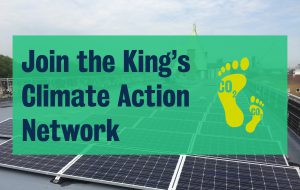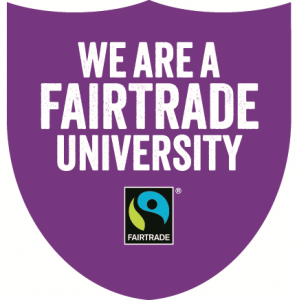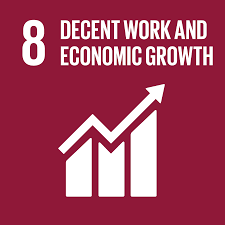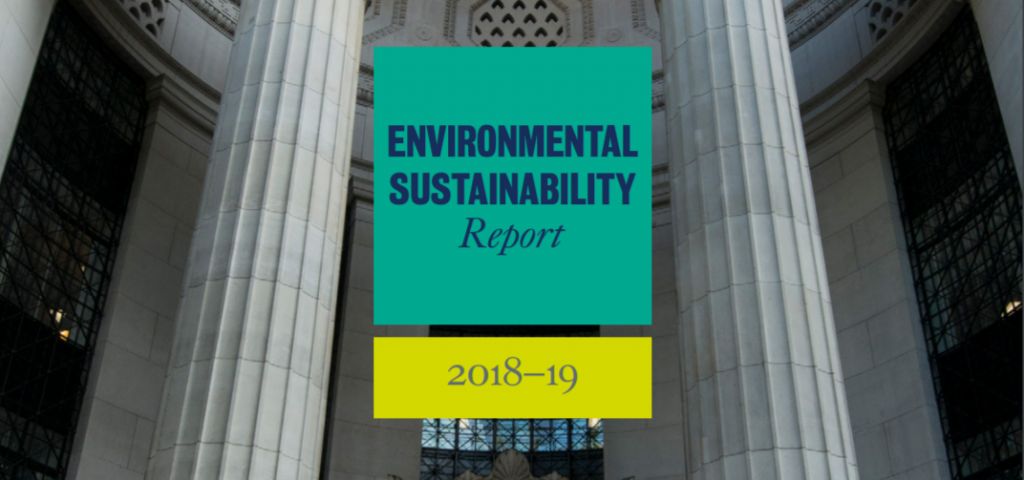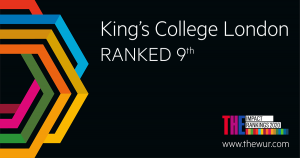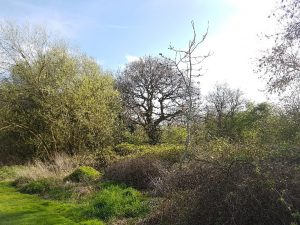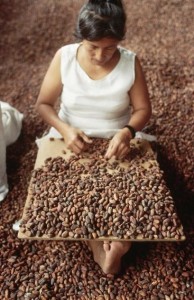Walking around London, we see countless advertisements for fashion retailers every single day. Especially today, on Black Friday, retailers are doing everything they can to convince us to spend more. But our love for fashion may be harming the environment: reports show that fashion is the 2nd most polluting industry in the world.
To find out more, the Environmental Audit Committee (EAC), which is a parliamentary select committee made up of MPs from across the political spectrum, launched an inquiry into the Sustainability of the Fashion Industry. Last week, they held a public evidence hearing at the Victoria and Albert Museum, questioning fashion designers, upcyclers and innovators about how to fix the fashion industry’s environmental impact. We were in the audience for the hearing, and are bringing you our highlights of the morning’s discussions.
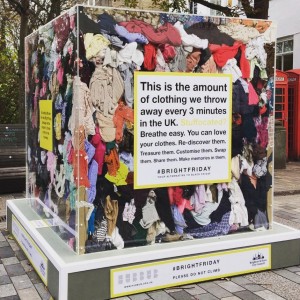
Source: Hubbub Foundation
The first thing that became evident was that there is no shortage of challenges to embedding sustainability into fashion. From ‘fast fashion’ being too fast to consider sustainable options to convincing manufacturers to return clothing scraps, fashion brands can face numerous obstacles. The good news is that there are plenty of ideas on how to change this. One interesting challenge is the scraps left over from pattern cutting. Designer Phoebe English told the audience to imagine a t-shirt, and then imagine the piece of fabric it was cut from. While the fabric offcuts used to be a resource and sold, they are now frequently discarded. But innovations are happening. In New York, non-profit organisation FabScrap collects this fabric waste and sells it to makers of all kinds (fashion students, sewists, quilters) at affordable prices. Some brands are also looking into zero-waste pattern cutting, where designs are laid out on the fabric in a way that eliminates cut-offs.
The hearing also showed that it’s not just brands who need to change, but also us consumers. The expert panel explained that even though clothes are becoming cheaper, we are spending more, as fast fashion leads us to buy larger quantities of increasingly disposable clothes. But while buying a new outfit may make us happy, the happiness from a new purchase typically wears off after three days. And if an item breaks, we often throw it away – adding to the tonnes of clothes sent to landfill in the UK every year. While some brands now offer free or paid repair services, this isn’t a widespread practice and the panel of experts felt that this was an area legislation could help push the industry in the right direction. One initiative could be making repairs VAT-free. Another idea was for the government to introduce better labelling for our clothes. In supermarkets, food is labelled with health warnings and information on its origin – but our clothes rarely contain warnings about the harmful chemicals they may have been treated with, or the environmental damage they caused.
Finally, sustainability in the fashion industry is not only about environmental sustainability. Increasingly, consumers want to know more about the social sustainability of their clothes. While the fashion industry provides employment for millions of women around the globe, the jobs are not up to scratch: pay is often poor, while working conditions are bad. Journalist Lucy Siege and founder of Eco-Age Livia Firth both pointed out that cheap clothes are only possible due to exploitation. In addition, Dr Offord MP explained that in a survey of 51 leading UK brands, 71% could not be sure that modern slavery had not occurred at some point in the supply chain. While the Modern Slavery Act was praised by the panel, many felt it does not go far enough in assigning legal responsibility. Organisations like IndustriALL Union are working to ensure garment workers everywhere in the world have the opportunity to join a union and fight for better working conditions.
With all these challenges, what can we as consumers do to make our fashion choices more sustainable?
Based on the information the panelists gave, we have put together our top tips for a more sustainable wardrobe:
- Buy less, but better
- Say no to fast fashion! Try to only buy what you really love and know will wear, and try to buy better quality clothes that you can love for longer. While difficult to do on a student budget, vintage shops, charity shops and resale platforms like Ebay or Depop may help you find some bargains!
- Get yourself a new outfit for free
- If you have some clothes you no longer want, why not try going to a clothes swap? You can usually bring clothes you no longer like, and swap them for other pre-loved items a t a clothes swap near you. If you live in King’s Residences, keep an eye out for any swaps your fellow students or the Residences Team are organising.
- It’s not just Reduce, Reuse, Recycle – you can also Rent
- There are lots of places where you can now rent an outfit for a special occasion rather than buying it new.
- Repair and repurpose your clothes
- If you can, try to repair your clothes instead of throwing them away, or alter them to give them a new look. There are more and more repair cafés popping up around the country, and some brands even offer repairs on their products.
- Look behind claims on labels
- During the hearing, the panel pointed out that while terms like ‘organic cotton’ are protected, claims of ‘sustainable cotton’ may not be. As consumers, we can try to find out what is behind these claims to make sure brands are sticking to what they promise.
If you are interested in finding out more about the inquiry, all the latest information is available on the Environmental Audit Committee webpages. The next public hearing is taking place on the 27th November, and will include witnesses from various fashion retailers. You can also watch the full footage of this public evidence hearing here.

